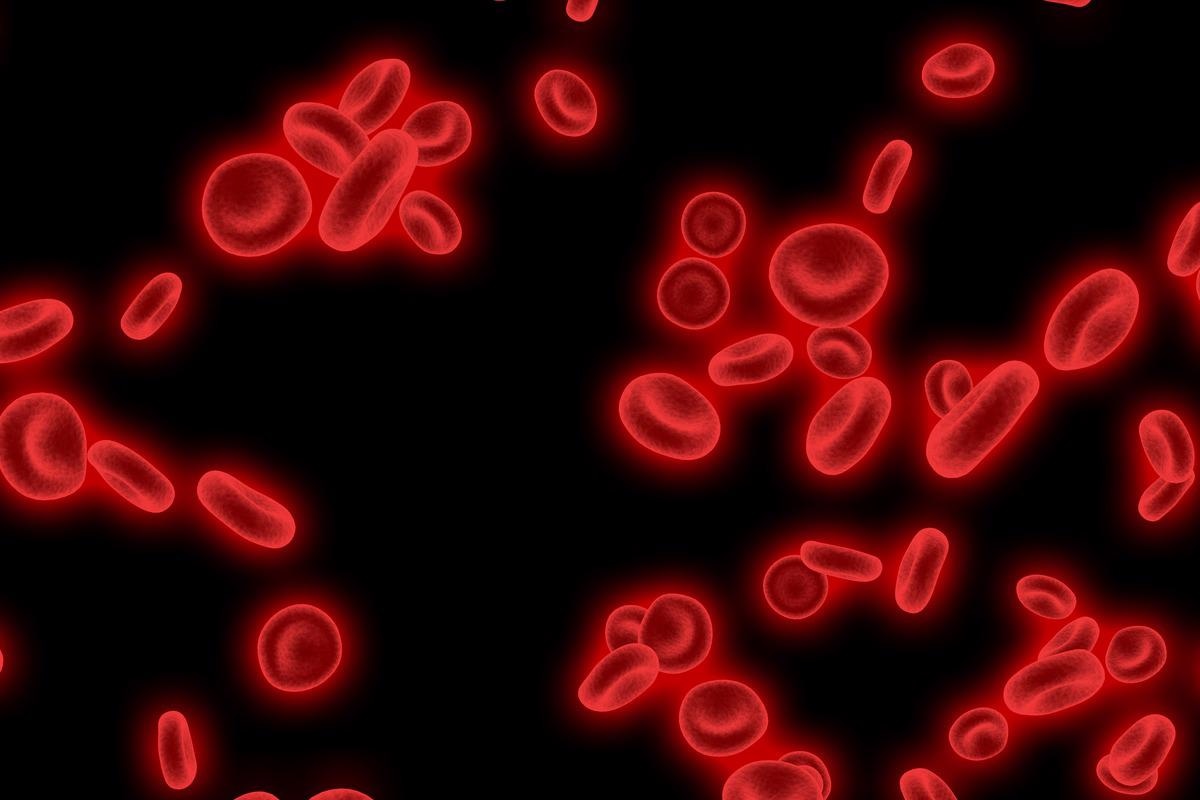The coronavirus disease 2019 (COVID-19) pandemic caused by severe acute respiratory syndrome coronavirus 2 (SARS-CoV-2) continues to overwhelm the delivery of healthcare throughout the world. The emergence of SARS-CoV-2 variants of concern and vaccine hesitancy are two factors that are mainly responsible for this.
 Study: Prognostic peripheral blood biomarkers at ICU admission predict COVID-19 clinical outcomes. Image Credit: kentoh/Shutterstock
Study: Prognostic peripheral blood biomarkers at ICU admission predict COVID-19 clinical outcomes. Image Credit: kentoh/Shutterstock
Individual patient responses to SARS-CoV-2 infections can range from asymptomatic or mild flu-like symptoms to severe symptoms that include acute respiratory distress syndrome (ARDS) and death. Severe cases of SARS-CoV-2 infection are associated with obesity, age, comorbidities, or secondary infections. Systemic corticosteroids and tocilizumab are administered for severe patients since both symptoms and conventional clinical measurements do not have adequate prognostic powers.
Immunologically severe patients have been found to exhibit neutrophilia, lymphopenia, emergency myelopoiesis, accumulation of lung monocytes, and changes in serum cytokine and chemokine responses. A few of the previous markers have been of interest for the development of prognostic tools. However, they have lacked the necessary statistical power to accurately predict the likelihood of severe disease.
Studies on cellular changes have indicated that severe disease is associated with decreased frequency of monocytes. Although they provide important information on the immune response against SARS-CoV-2 infections, they are yet to be translated into prognostic tools.
A new study published in the pre-print server medRxiv* involved the development of an immunological biomarker screen that upon ICU admission can predict the length of ICU stay or death.
About the study
The study involved the collection of blood samples from SARS-CoV-2 positive patients within 48 hours of ICU admission between November 2020 and February 2021. For control, blood samples were collected from healthy volunteers who had no previous COVID-19 history or any COVID-19 symptom.
Patient demographic, as well as clinical information, were also collected. The patients were then classified into two groups, “Short Stay” and “Long-Stay/Died”. The “Short Stay” patients were those who spend less than 6 days in the ICU while “Long Stay/Died” patients were those who stay for more than 6 days or until death in the ICU.
Thereafter, peripheral blood mononuclear cells (PBMC) were isolated from the collected blood samples. The PBMCs were used for antibody staining as well as mass cytometry (CyTOF) data collection followed by quantification of serum cytokines.
Findings
The results reported no significant differences in age, clinical outcome, body mass index (BMI), serum C-reactive protein (CRP) levels, blood clotting parameters, PBMC counts between the Short Stay and Long Stay/Died groups. However, the mean ICU admission levels of serum IL-10 and TNFα were found to be higher in the Long-Stay/Died group as compared to the Short Stay group. A more significant difference in the levels of IL-10 and TNFα was reported on the examination of post-admission samples between the two groups.
No major difference in the levels of B, T, NK, and myelomonocytic cells were reported between the Short Stay and Long-Stay/Died group. The CD11c classical monocyte level was found to be higher in the Long-Stay/Died group as compared to the Short-Stay group. Although T cell subset alterations were reported in the patients as compared to healthy controls, no significant difference between the two groups was observed.
The results also indicated that length of ICU stay could be more accurately correlated with serum IL-10 levels as compared to serum TNFα levels. Therefore, a diagnostic tool was developed with serum IL-10 levels and levels of CD11c classical monocyte. This tool was found to have 91 percent accuracy in the determination of the clinical outcome of COVID-19 patients newly admitted to ICU.
The current study, therefore, indicates that a combination of two biomarkers at the time of ICU admission could help to determine the length of ICU stay or death in patients with severe SARS-CoV-2 infections. These biomarkers can also be important as temporal monitoring tools to determine disease trajectory as well as responses against therapeutic approaches.
*Important notice
medRxiv publishes preliminary scientific reports that are not peer-reviewed and, therefore, should not be regarded as conclusive, guide clinical practice/health-related behavior, or treated as established information.
https://news.google.com/__i/rss/rd/articles/CBMilQFodHRwczovL3d3dy5uZXdzLW1lZGljYWwubmV0L25ld3MvMjAyMjAyMDMvU3R1ZHktcmV2ZWFscy1wZXJpcGhlcmFsLWJsb29kLWJpb21hcmtlcnMtYWJsZS10by1wcmVkaWN0LUNPVklELTE5LWNsaW5pY2FsLW91dGNvbWVzLWluLUlDVS1hZG1pc3Npb24uYXNweNIBAA?oc=5
2022-02-03 16:01:00Z
1275021967
Bagikan Berita Ini














0 Response to "Study reveals peripheral blood biomarkers able to predict COVID-19 clinical outcomes in ICU admission - News-Medical.Net"
Post a Comment